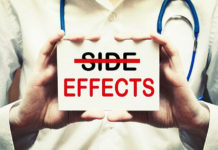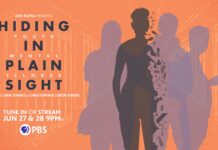What is #toppmote2015 and Why Does it Matter?
Toppmøte is Norwegian for ‘summit,’ and Toppmøte2015 is the second of two very successful seminars bringing together professionals, academics, and policymakers with citizens, voters and users of services – under the aegis of the Norwegian ‘Nasjonalt senter for erfaringskompetanse innen psykisk helse’ or “National Centre for Knowledge through Experience in Mental Health.” That’s a rather wonderful organisation, funded by the Norwegian government, which ensures that the experience of people who have used mental health services is reflected in the commissioning, design, management and evaluation of those services.
The Day I Became Schizophrenic
Schizophrenia, to me, is nothing more than a word. All it really means is that you experience psychosis on a regular enough basis that it’s a factor in your life. And that you actually do, as the word “schizophrenia” indicates, have a mind that you share with some sort of outside presence.
Chinese Medicine for Emotional Healing
Chinese medicine offers one proven path to emotional balance and harmony for many people who struggle with anxiety or depression. Many people who receive treatment from a licensed acupuncturist experience significant benefit, and don’t need to take psychiatric drugs.
INTAR India 2016: Reflections
Despite everyone's best intentions, the river of psychopharmacy was making its path through the global south, with no stops anywhere within policy or practice. INTAR India 2016 became very important for the global south against this rising tide and the overmedicalization of people's psychosocial distress and disabilities.
People of Great Britain! Our Beast Descends Upon Your Children
Scientific evidence indicates that antidepressants do not help children. In light of such high risks to the child’s wellbeing, these psychiatric chemicals are clearly doing more harm than good. What kind of society would permit this assault on its children?
40,000 Suicides Annually and America Still Shrugs
In my last two posts, Back in the Dark House Again: The Recurrent Nature of Clinical Depression and Am I Having a Breakdown or Breakthrough? Further Reflections on a Depressive Relapse, I have shared my recent relapse into depression. Although it has been tough, when I wake up each morning I am grateful for one thing — I am not suicidal. Others are not as fortunate.
Identity Theft
I was a chemical and diagnostic sewer. Never, ever have I been sicker, more depressed, more anxious, or more confused than while medicated or struggling to quit a psychiatric medication. For me, the bugaboo was benzodiazepines, and after seven years of continuous use that climbed to four mg of clonazepam a day, I went through a living nightmare to quit, made all the worse by further drugging and red-herring misdiagnoses of mania, mood cycling, and major depression.
A Reply to Peter Kramer: Do Serotonin Imbalances Cause Depression?
A recent article on the website i09 titled, ‘The Most popular Antidepressants are Based on an Outdated Theory” has again raised the issue of Chemical Imbalances. It is interesting that the author of the i09 piece cites Dr. Peter Kramer and states, “Some psychiatrists vehemently disagree with the way journalists and other psychiatrists have pushed back against the chemical imbalance theory….” In both cases he cited what he considered the best evidence in support of the theory, but he did not discuss the research in any depth. Back in 2008, we took an in-depth look at the evidence that Dr. Kramer used to support the chemical imbalance theory. When one takes a closer look at that research we do not think it supports the theory. For this reason, we are reposting our 2008 essay about this.
Einstein, Social Justice and The New Relativity
To create his theory of relativity, Einstein had to see things differently. He used imagination and empathy to come to know a new 'reality' of existence. In this essay, we delve deeply into the nature of human experiences that lead to public concern and discover ourselves in a whole new realm.
Driving Us Crazy: A Festival About Madness in Society, and in All of Us
I am proud and happy to announce that our webpage DrivingUsCrazy was launched today. It will help us to get the word out about the international film festival taking place in Gothenburg, 16-18 October, 2015, and also to highlight the issue of madness every day until then — and hopefully for many days afterwards.
Vertex Pharmaceutical Executives Cash in on False Hopes
Senior executives at Vertex Pharmaceuticals made millions of dollars each by selling company stock in the days after the Cambridge-based pharmaceutical reported promising clinical...
What the RADAR Trial Tells Us About Antipsychotic Reduction and Discontinuation
Although the trial showed that you are more likely to relapse if you stop or significantly reduce your antipsychotic medication, it did not show that relapse is inevitable.
Are “Trauma/Addiction Experts” and Psychiatrists Misleading Us?
“Experts” refer to an ill-defined concept of “trauma,” but unique traumatic experiences should not be generalized.
Critical Psychiatry Textbook, Chapter 8: Depression and Mania (Affective Disorders) (Part Nine)
Peter Gøtzsche on more harms caused by depression pills, including akathisia and its connection to homicide.
DSM-5 Boycott Enters 2nd Phase: A Primer for the NO-DSM Diagnosis Campaign
Yes, the boycott of the DSM-5 continues. I can’t tell you how many fewer DSMs have so far been purchased as a result of the boycott; and conversations I have had with professionals in New York’s public mental health system lead me to believe that the great majority continue to accept the validity of the biomedical model and the centrality of psychoactive medications in the treatment of persons caught up in the public system. Perhaps that’s the most important argument in support of the boycott’s continuation – we have so many more folks to reach.
Why Disease and Illness Are Concepts of the Body
If you loosen the association between the concepts of illness and disease and the body, the words cease to have any discriminative power. They are no longer able to pick out a particular category of unwanted situations and become synonymous with generic terms like ‘problem’ or ‘difficulty’. They become meaningless.
Culturally Numb
Experiencing emotional pain is a necessary part of life. Emotional pain often contains valuable lessons to help us on our journeys. We need to make sure we are not numbing our hearts to those that are hurting. We need to de-stigmatize the struggles, joys and pains that come with being human. We need to not just mindlessly pursue happiness - though we might think of that as an inalienable right - and avoid pain. We need to do the only thing that brings true joy: embrace all of life and each other, as we experience together all that makes us human.
Keeping Meili Off Psychiatric Drugs
We first came under pressure to give our developmentally disabled and autistic daughter a psychiatric drug when she was in her mid-teens. She was attending a local school for autistic children but was unable to adapt to their program, and we were urged to consult a psychiatrist. What enabled us to resist the pressure to put our daughter on drugs?
How I Developed a Critical Perspective on Psychiatry
I saw many people admitted to psychiatric wards having suffered a recent or past trauma, only to leave with prescriptions for multiple drugs.
The Politics of Distress: A Discussion With Dr. James Davies on His New Book,...
James Davies on the medicalization and individualizing of distress and its connection to neoliberal ideology, and the need to focus on pervasive inequality and other social causes.
Critical Psychiatry Textbook, Chapter 9: ADHD (Part Two)
Peter Gøtzsche discusses the results of the MTA study on ADHD drugs and the misleading statements textbooks make about ADHD treatment.
The Logic of the ADHD Diagnosis
When constructing the ADHD diagnosis, progenitors essentially say, "Let's study a group of people who do particular hyperactive, impulsive, and distracted behaviors that are associated with chronic and pervasive problems in school, social life, and work. If the person is an adult, the problems must be present in childhood and show consistency throughout development. We will call this group "ADHD" and study correlated biological characteristics and other associated difficulties. We will continue to tweak the criteria so that the diagnostic net falls on the people with the correlated dysfunctions and patterns of biology that we find in our research.
There Is No Such Thing as a Side Effect
There is no such thing as a side effect. There are only the real effects — plain and simple. If you’ve been through what I’ve been through, shuffling through life in a drug-induced haze for eight years — well, you don’t want to hear about “side effects” anymore, or anything about how they’re “secondary.”
Justina Pelletier Supporters Say: Close Harvard’s Abusive Psych Ward at Boston Children’s Hospital
Justina Pelletier has been moved from Boston Children's Hospital to another psychiatric facility, but her ultimate fate, and perhaps her very survival, is still in doubt. The next hearing about her custody is scheduled for February 4. Another hearing, about the dysfunctional Department of Children and Families, who removed the child from her parents and placed her on a psychiatric ward for the past year, is scheduled for January 23, and I encourage readers to attend both hearings.
Ken Burns’ “Hiding in Plain Sight…”: Candid Interviews, Canned Conclusions
I was hoping for more accurate representation of youth mental health challenges. What I saw instead was a glossy patchwork of mixed messages.






















